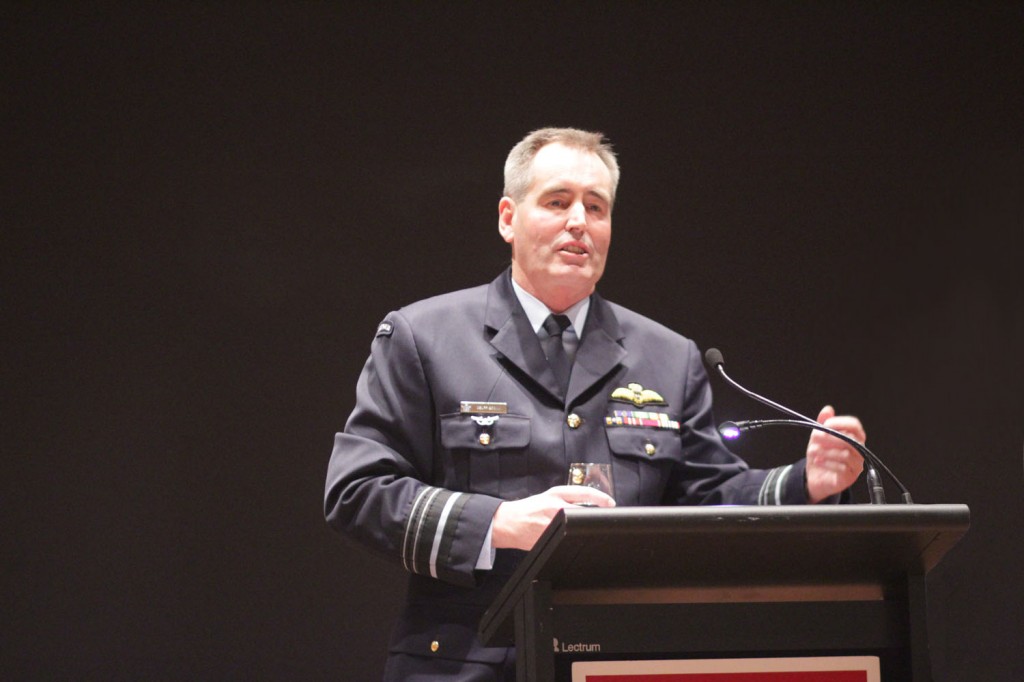 As Herman Göring might have said, ‘when I hear the name Carl von Clausewitz, I reach for my gun’. (He actually made the comment about the word ‘culture’.) Particularly when the reference occurs early on in a speech and when it’s followed, in short order, with a machine-gun like spray of other military theorists—finishing up with Azar Gat. There was, however, method in Air Marshal Geoff Brown’s dinner speech to the Australian Strategic Policy Institute and the reference to Gat (who believes traditional war is in decline in today’s world) was certainly not accidental.
As Herman Göring might have said, ‘when I hear the name Carl von Clausewitz, I reach for my gun’. (He actually made the comment about the word ‘culture’.) Particularly when the reference occurs early on in a speech and when it’s followed, in short order, with a machine-gun like spray of other military theorists—finishing up with Azar Gat. There was, however, method in Air Marshal Geoff Brown’s dinner speech to the Australian Strategic Policy Institute and the reference to Gat (who believes traditional war is in decline in today’s world) was certainly not accidental.
The Chief of Air Force began with a discursive explanation of how airpower had begun, during World War One, as little more than an ancillary to the real protagonists deciding the result on the ground. Then came the almost obligatory development of his theme, the transition from appendage to enabler in World War Two.
Perhaps I’ve listened to too many after-dinner speeches. I’d almost begun to drift off and count the rosettes on the ceiling. ‘Now’, I thought to myself, ‘there’ll be an elaboration of how the RAAF has subsequently become the decisive factor in the military equation’. That was a mistake.
When Brown turned to the present he suddenly became specific. Gone were the broad brush-strokes with their theoretical references; replacing them came details and particulars. But, and much to my surprise, there weren’t any references to the third generation of war—one where airpower reigned supreme. Instead the Chief emphasised something we journalists find it difficult to get our heads around: there are no simplistic answers in modern conflict. It requires a team to achieve the objective, and every player has their part.
It’s interesting to hear this sort of talk from one of the three service chiefs, particularly at a time of increasing financial stringencies. While it’s true the announcement we’re going to buy the Joint Strike Fighter means the RAAF has already been given its Christmas and birthday presents for many years to come, technology is developing fast.
The big question, of course, is how rapidly unmanned systems will develop. As long ago as 2011, even the Economist was predicting that the piloted plane could soon become a thing of the past. But, and as Brown pointed out, that’s misreading the lessons of history.
His message was that there is no silver bullet. Military effects are created by a system of systems. Brown had just as much time in his speech for the maintenance engineer as he did for the unmanned drone.
We don’t reflect on that often enough. It’s in our nature to look for the sensational breakthrough technology; the wonder-weapon. Those don’t exist. That’s probably not the message Brown wanted us to take away from his speech—but it’s not a bad one. And it’s a relief to see that even the head of the RAAF’s capable of understanding that airpower alone never wins wars.
Apart, of course, from Bosnia.
Nic Stuart is a columnist with the Canberra Times. Image credit: Luke Wilson, ASPI.

